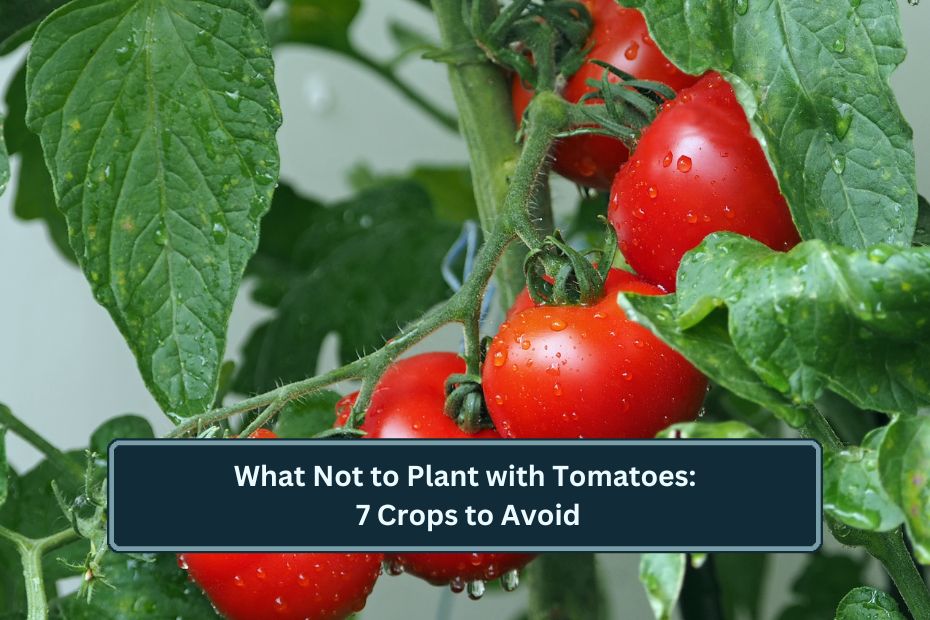Tomatoes are a favorite in many home gardens because they’re delicious, versatile, and easy to grow. However, not all plants get along well with tomatoes, and some combinations can even harm your crop. If you’re planning your vegetable garden, it’s important to know what not to plant with tomatoes to ensure that they grow healthy and strong. In this article, we’ll explore which plants should be avoided when planting tomatoes and why.
Why Planting Certain Plants with Tomatoes Can Be Problematic
Before we dive into the list of plants to avoid, it’s helpful to understand why certain plants shouldn’t be planted near tomatoes. Tomatoes are sensitive to competition, pests, and diseases, and some plants can cause one or more of these issues. Some plants release chemicals that stunt tomato growth, while others attract pests or diseases that can spread to your tomato plants.
1. Cabbage Family (Cabbage, Broccoli, Cauliflower, Kale)
Members of the cabbage family, such as cabbage, broccoli, cauliflower, and kale, are generally not good companions for tomatoes. These plants require a lot of nutrients from the soil, and when grown near tomatoes, they can compete for the same resources. This can result in weaker plants and lower yields for both crops. Additionally, cabbage family plants attract pests like aphids and caterpillars, which can also damage your tomatoes.
Why Avoid:
- They compete for nutrients.
- They attract pests that harm tomatoes.
- They may stunt tomato growth.
2. Corn
While corn is a popular crop in many gardens, it’s not ideal to plant it near tomatoes. Corn and tomatoes both have similar nutrient needs, meaning they can end up competing for the same resources in the soil. Corn also grows tall, which can cast shade on your tomato plants, limiting their exposure to sunlight. Furthermore, corn can attract pests such as the corn earworm, which may move on to your tomatoes.
Why Avoid:
- Competition for nutrients and space.
- Corn’s height can block sunlight for tomatoes.
- Corn attracts pests that may harm tomatoes.
3. Potatoes
Tomatoes and potatoes both belong to the nightshade family (Solanaceae), and planting them together can increase the risk of soil-borne diseases like blight. These diseases can spread quickly between the two crops and lead to severe damage or loss of both plants. Additionally, since they share similar pest issues, planting them close together can lead to more pest problems.
Why Avoid:
- They are both susceptible to similar diseases, like blight.
- The risk of pest infestations is higher.
- They compete for soil nutrients.
4. Fennel
Fennel is a herb that should never be planted near tomatoes. This plant produces a chemical that can inhibit the growth of nearby plants, including tomatoes. Fennel’s strong, aromatic scent may also attract pests that can damage your tomatoes. It’s best to plant fennel in a separate area of your garden, away from your tomato crops.
Why Avoid:
- Fennel releases chemicals that stunt tomato growth.
- It can attract pests harmful to tomatoes.
- It competes for space and resources.
5. Carrots
While carrots don’t directly harm tomatoes, they’re not the best companion. Carrots grow slowly and have long taproots, which can interfere with the shallow roots of tomato plants. This can create competition for nutrients and space in the soil, making it harder for both crops to thrive.
Why Avoid:
- Carrots’ taproots compete with tomato plants’ shallow roots.
- Can lead to stunted growth for both plants.
6. Peppers
Tomatoes and peppers are both part of the nightshade family, just like potatoes, which makes them prone to similar pests and diseases. When grown together, they can spread pests like aphids, whiteflies, and spider mites, and both plants may suffer from diseases like blight. It’s best to keep tomatoes and peppers apart to reduce these risks.
Why Avoid:
- Both are prone to similar pests and diseases.
- Can result in increased pest problems for both crops.
- Competition for nutrients.
7. Onions and Garlic
Onions and garlic, while they can repel some pests, can also stunt tomato growth if planted too close. These alliums release certain compounds into the soil that can interfere with the growth of tomato plants. They can reduce the number of tomatoes produced and cause yellowing or poor development of the plants.
Why Avoid:
- They release compounds that can stunt tomato growth.
- Can lead to poor tomato yields.
While tomatoes are a versatile and popular crop to grow, they do have some specific needs when it comes to companion planting. To ensure your tomato plants grow strong, healthy, and productive, it’s important to avoid planting them next to certain crops like cabbage, corn, potatoes, fennel, carrots, peppers, and onions. By choosing compatible plants that won’t compete for resources or attract pests, you can enjoy a bountiful tomato harvest and a healthier garden overall.
Visit Home

